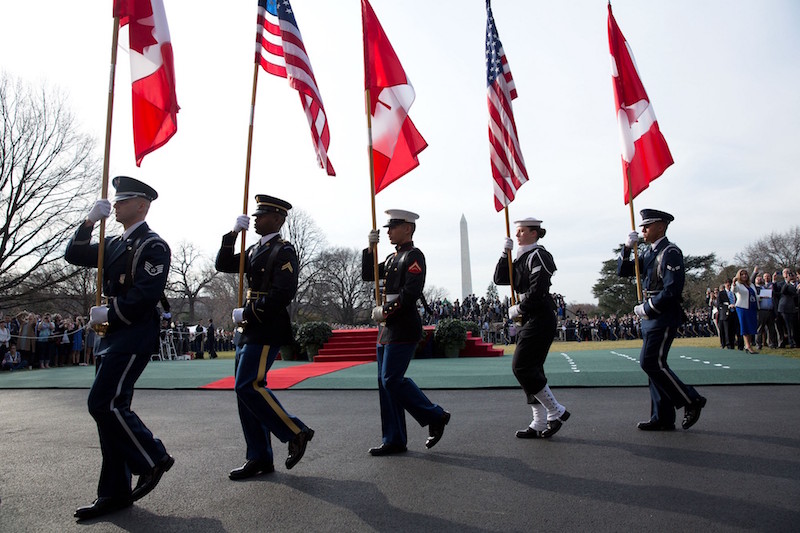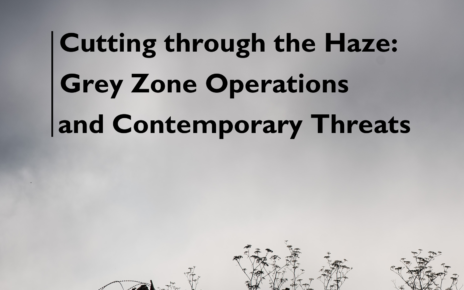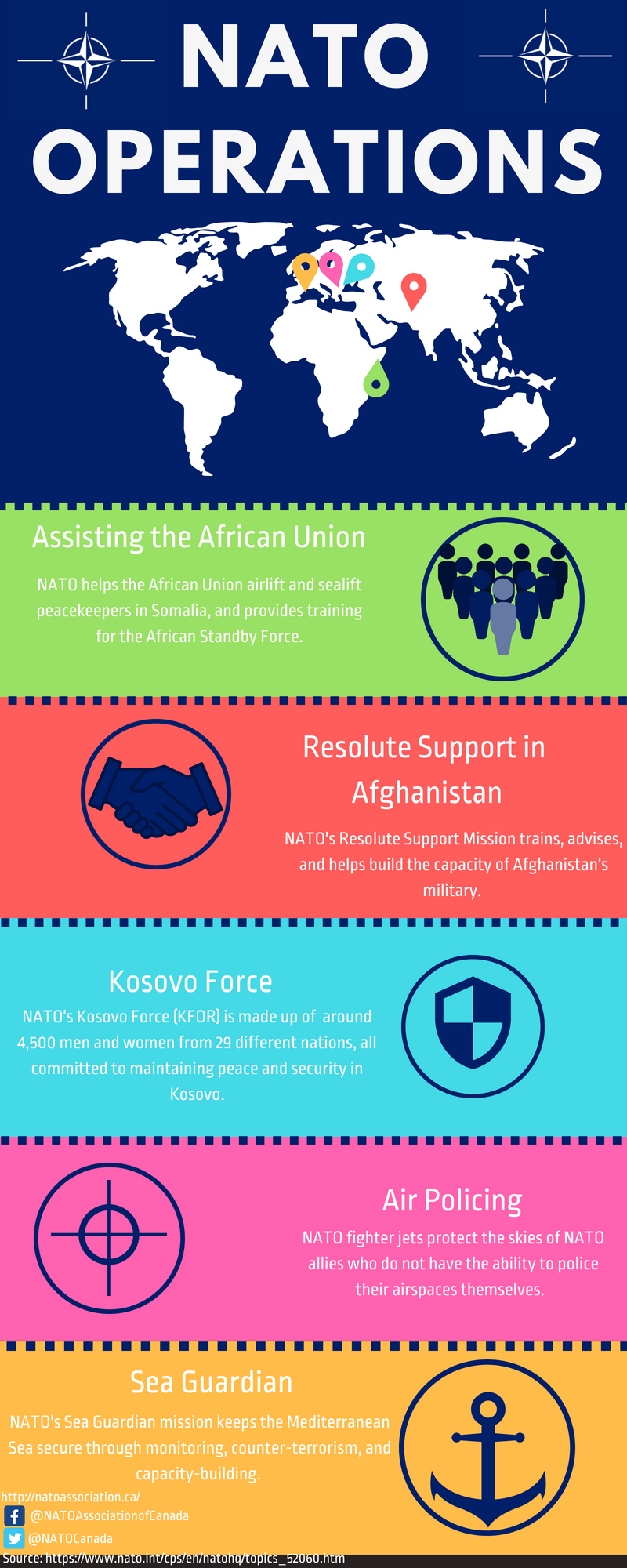Prime Minister Justin Trudeau and the Liberal Party of Canada continue to enjoy very favourable poll numbers. Forum Research recently found that 52 percent of Canadians would consider voting Liberal. This is a 6 percent increase from their support level in March 2016. The honeymoon, a period of popularity enjoyed by a new government, does not seem to be subsiding for the Liberal government at all. The Forum survey does not gauge Canadians’ opinion on specific issues, but it would be interesting to see how Canadians view their hawk of a Prime Minister’s foreign policy.
A hawk, a person who favours military force or action in order to carry out foreign policy, may not be how many Canadians view their current Prime Minister. However, Justin Trudeau would not be the first leader to be socially liberal domestically, but be a hawk on foreign policy.
President Barack Obama was one of the world’s first post-cold war social liberal leaders to advocate for a robust American military. After his election in 2008, President Obama deployed tens of thousands of troops to Afghanistan. Despite withdrawing from Iraq by December 2011, Obama has committed 3,500 soldiers to fight against the Islamic State in Iraq and the Levant (ISIL). The Democrat President continues to demonstrate that left-wing political leaders can be foreign policy hawks.
Even in relation to Iran the President has implied a military option is not off the table. Before the US reached its seminal nuclear deal with Iran last year, Barack Obama considered military action as a viable option to prevent Iran from obtaining a bomb.
The US President may be attempting to outmaneuver the Republican Party on foreign policy issues. Traditionally the American public views Republican leaders as being more capable of making wise decisions about foreign policy. The most recent poll by Pew Research Center found that 46 percent respondents shared this view, versus 38 percent.
Prime Minister Justin Trudeau appears to be following Barack Obama’s example. During a recent visiting to Canada, Obama passed the diplomatic torch to Canada’s new Prime Minister, President saying, “I know that Canada and the world will benefit from your leadership for years to come.” After only 9 months in office Prime Minister Trudeau seems to be following the President’s example in many aspects.
One of Justin Trudeau’s first official acts was to announce the end of the bombing mission in Iraq. The Conservative opposition asserted that “we [Canada] must remain resolute and support our allies.” Canadian CF-18s may no longer be conducting missions within Iraqi and Syrian airspace, but Canada’s commitment has grown in other areas.
In March 2016, the Liberal government refocused Canada’s mission against ISIL. The new mission focuses on expanding ground forces to 830, and committing more than $1.6 billion over the next three years to the military and humanitarian mission. Defence Minister Harjt Sajjan is still reluctant to call the conflict with ISIL a war. He persists in this despite his American counter-part, Defence Secretary Ashton Carter’s, telling the US congress “we’re at war.” The commitment of at least 830 troops is one of the Prime Minister’s least military robust announcements.
At the NATO summit in Warsaw, Poland, Trudeau announced that Canada would deploy the largest sustained military contingent to Europe in more than a decade. This contingent will include over 500 soldiers, six CF-18s, and a frigate, which will be deployed to Latvia. This show of force is an attempt to deter further Russian aggression in the region. The deployment of such a significant force demonstrates the Prime Minister’s willingness to use hard power to achieve foreign policy objectives.
One of the most glaring examples of how Canada’s left has become aligned with hawks on the right is the Canadian government’s recent announcement that it will sell lethal weapons to Ukraine. On July 12, Prime Minister Trudeau made his first official visit to Ukraine, and concluded both a trade and a defence agreement with President Petro Poroshenko. Under the defence agreement, weapons will be supplied to Ukraine. As recently as last year, former Prime Minister Stephen Harper was noncommittal when pressed about possibly providing arms to Ukraine. When it comes to Ukraine, Trudeau has decided to pursue a more hawkish foreign policy than his Conservative predecessor.
The current Prime Minister was elected on a slogan of real change. In November 2015, commentators argued that “Harper’s conservative government has been replaced after ten years of implementing a policy agenda that appeared to be a copy and paste from Washington’s handbook.” It seems that Trudeau may not be throwing out the Washington handbook just yet. Trudeau’s decisions to rely on a more military robust foreign policy will leave liberals and conservatives perplexed about his new direction for Canada.
Photo: U.S. Military Honor Guard marches into position prior to State Arrival ceremony for PM Trudeau and wife, Sophie Grégoire-Trudeau on South Lawn of the White House (2016). Official White House Photo by Lawrence Jackson via Wikipedia. Public Domain.
Disclaimer: Any views or opinions expressed in articles are solely those of the authors and do not necessarily represent the views of the NATO Association of Canada.




